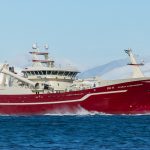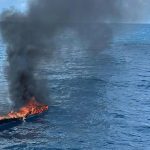The use of foreign fishing crews by the Maori to catch their Treaty of Waitangi quotas have been forbidden by the government. Fisheries Minister Phil Heatley told the Maori fisheries Conference in Nelson that they should refrain from using the ageing foreign fishing crews because the foreign charter vessels (FCVs) were “well past their use-by-date”.
His warning followed reports which revealed Maori deep-sea fishing, once touted as an economic saviour for Maori, now depends on Asian and Ukrainian FCVs where conditions are akin to sweatshops. He informed that the government is trying to moderate the use of FCVs which has been resisted by some iwi, which say without them they cannot fish. Iwi rent out their quota to operators who use FCVs with most of the catch shipped to China for processing.
The Minster also informed that there were around 2500 men who work them are from poor Third World areas, are beaten and forced to work for days without rest, earning between $260 and $460 a month. Conditions came into focus following last August’s sinking of the 38-year-old FCV Oyang 70, followed four months later when the 31-year-old No 1 Insung, operating out of Bluff, sank in the Ross Sea with the loss of 22 men.
Heatley said that total ban of using foreign crew may seriously devalue quota especially if the New Zealand fleet is unable to sustainably catch all the available fish, leaving valuable New Zealand exports in the water. This would drive down New Zealand export earnings, and the price of the “annual catch entitlement” Maori received.
Heatley said this year the total fish quota is valued at more than $4 billion, with Maori controlling 37 percent of it, as a result of a 1992 Deed of Settlement with the government reached in treaty settlements. He said there was a growing global demand for sustainably fished and independently verified seafood.








